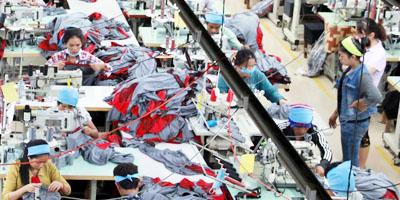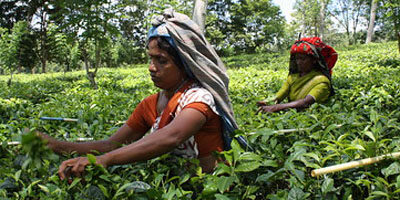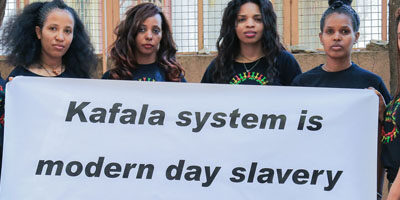Did you know that two thirds of the world’s people get their food supply from small-scale farmers? Did you know that small-scale farmers use only 30% of the world arable land? Or that women produce 70% of the food on earth?

April 17th – Day of Peasant’s Struggles. Source: La Via Campesina
April 17th – Day of Peasant’s Struggles. Source: La Via Campesina.
La Via Campesina, also known as the Peasants’ Movement, stands for 200 million farmers globally, including small and medium-size farmers, indigenous people, women farmers, landless workers, migrants and agricultural workers. It represents 164 organizations from 73 countries, according to its website.
Women produce 70% of the food on earth, but they are severely marginalized, making gender equality an important issue when talking about the rights of small-scale farmers.
More than two thirds of the world’s people are dependent for their food on small-scale farmers, who use only 30% of the world arable land, according to the article written by World Development Movement’s policy officer, Christine Haigh. However, most small-scale farmers struggle to establish their rights to use and manage land, water, seeds, livestock and biodiversity.
A major concern of La Via Campesina is that in the developing world, most notably Africa, countries are being strong-armed into changing land laws in ways that directly benefit foreign corporate investors, but afflict small-scale farmers. In this land-grabbing scheme, these countries are promised aid and direct investment in return for facilitating the expansion of agribusiness. The pace of land acquisition is alarming; this scenario is also common in food-insecure countries such as China, Libya and South Korea.
- Foreign investors acquired about 111 million acres of farmland globally: 75% of it is in Sub-Saharan Africa, as stated by the World Bank Report (2009).
- In Sierra Leone, 20% of arable land from the rural population is leased to foreign producers of sugar cane and palm oil, according to the Oakland Institute.
- In Liberia, British, Malaysian and Indonesian palm-oil producers secured the long-term lease of over 1.5 million acres of land, formerly held by local communities.
- In Ghana, 1 million hectares of maize and sorghum croplands are displaced by Jatropha agro-fuel production under the current agreements with foreign companies, Food First reports.
- In Mali, farmers are forced to produce water-intensive export crops instead of desert tolerant, rain fed crops of indigenous maize.
- In Malawi, widespread promotion of hybrid seeds magnifies gender inequalities since hybrid maize is a crop controlled by men, while local maize varieties and groundnuts are usually controlled by women.
The struggles of the farmers are not solely about establishing their rights over land use and management. At times, the farmers are deprived of supplies, such as seeds, water, fertilizers and pesticides, which are crucial to the production of crops and well-being of farmers and their families. This is often caused by corruption related to the equitable distribution of seeds and the hampering of fertilizers. In India there is something called the “suicide belt.” The difficulties related to agrarian injustices and difficulties have caused about 241,679 farmer suicides from 1995 to 2009, and these numbers exclude women, who generally do not have land titles, but are also affected by the issue.
As opposed to large-scale commercial farming, local producers are aware of their local environment, and are focused on sustainable farming. However, sustainable farming is not cost effective in the short-term and thus, not an option when considering profit margins. Yet, in the long term, it is advantageous due to protecting soil formation, limiting the pollution of groundwater and mitigating the greenhouse effect and global warming.
U.N. Commission on Trade and Development 2013 Report echoes this view.
 Farmer tending soybean field. Source: International Institute of Tropical Agriculture.
Farmer tending soybean field. Source: International Institute of Tropical Agriculture.
La Via Campesina is an autonomous, multicultural, grassroots movement that advocates in the name of farmers. It is a proponent of small-scale sustainable agriculture and it helps farmers fight to get the rights to the lands they work, and to the related resources, in order to sustainably produce food and remain independent of the corporate sector.
The Social Justice Connection strongly supports La Via Campesina’s mission on its 21st anniversary, this 17th April, 2014.



